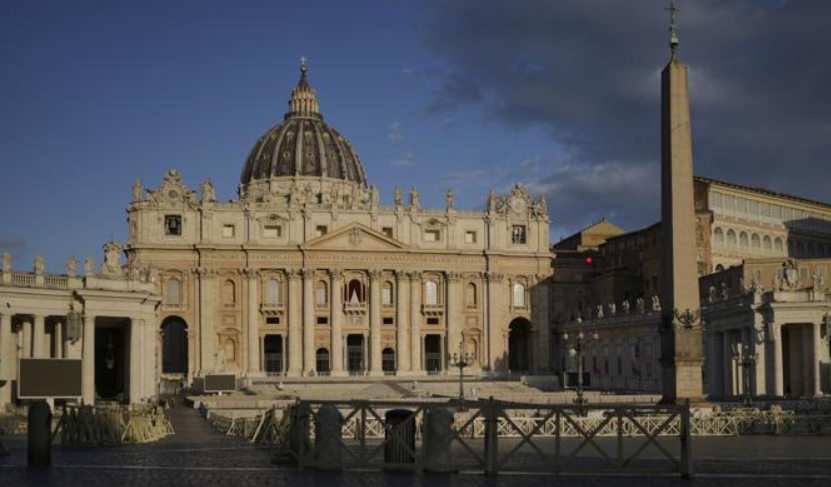We are now several days removed from the 2025 papal conclave. Following the passing of Pope Francis, many were anxiously waiting to see who would be his successor. Various reported or suspected frontrunners were highlighted throughout this process, including Cardinal Tagle, Cardinal Parolin, and Cardinal Turkson, among several others. However, when the white smoke emanated from the Sistine Chapel, the new pope was not any of the suspected frontrunners. Instead, Robert Francis Prevost was announced as the next pope, much to the shock of many people, political analysts, and news correspondents alike.
Prevost, who chose the name Pope Leo XIV, is the first American-born Pope in the history of the papacy. Born in Chicago, Pope Leo XIV is a dual citizen, as he established Peruvian citizenship after moving to Peru in 1988. Eventually, Pope Leo XIV was appointed as Bishop of Chiclayo in 2015 by Pope Francis, and eventually as Prefect of the Dicastery for Bishops in 2023. While then-Cardinal Prevost had been mentioned by some as a potential candidate for the papacy, he was rarely mentioned as a frontrunner compared to several other names. However, many reports surrounding the suspected frontrunners turned out to be rumors based on questionable information, such as betting markets.
The election of Prevost to the papacy is significant for several reasons. However, given the current political climate, a major topic of discussion surrounding the election of Prevost revolved around his suspected ideology/political views. During his papacy, Pope Francis was generally viewed as a “liberal” pope, at least in relation to previous popes, as Pope Francis was often credited with promoting a more inclusive vision of the Catholic Church. Now that a new pope has been elected, many are curious if he will continue to promote the ideology of Pope Francis or if he will guide the Catholic Church in a more conservative, traditional direction.
Immediately, many political analysts and journalists pointed to Pope Leo XIV’s voting history, which showed that Leo XIV had participated in several Republican Primary elections. However, he did not vote in the 2016 and 2020 general elections. Some individuals used this information as a sign that Leo XIV may usher in a more traditional and conservative philosophy. Others pointed to previous posts on Leo XIV’s Twitter/X account, in which Leo XIV was shown to have reposted and written statements critical of President Trump and Vice President J.D. Vance regarding their immigration and deportation policies, to suggest that Leo XIV may be closer in alignment with Pope Francis. Others also took notice of the name chosen by then-Cardinal Prevost upon his election – Leo XIV. Some have speculated that the decision to choose the name Leo XIV was inspired by Pope Leo XIII. Pope Leo XIII is famous for his book Rerum Novarum, in which Leo XIII promoted workers’ rights, just wages, modern Catholic Social Teaching, and opposition to unrestrained capitalism and total socialism. This led many to speculate that Leo XIV’s ideology and philosophy may have been inspired by Leo XIII.
As a Catholic and an American, I am personally not concerned or even interested in the past comments, reposts, and voting history of Pope Leo XIV. Criticizing the Trump administration on specific policy issues does not immediately make Leo XIV a “liberal” pope, nor does his previous voting history in Republican primaries immediately suggest that Leo XIV will be a conservative or traditional pope. However, I am intrigued by Prevost’s decision to take the name Leo XIV. As an admirer of Pope Leo XIII, I would certainly be delighted if Leo XIV were to follow in the footsteps of Leo XIII and were to continue to promote the ideals of Catholic Social Teaching – the dignity of all humans, standing in solidarity with the most vulnerable, and the promotion of the family and broader community over the individual. I believe these principles, among several others, to be at the core of Catholicism, though they are far from the only principles of concern.
The biggest area of political intrigue among the general public, especially in the American political sphere, will be Leo XIV’s position on many social and cultural issues, especially LGBTQ-related issues. Currently, there is little information regarding Leo XIV’s position on LGBTQ issues. As of 2012, Pope Leo XIV appears to be opposed to same-sex marriages, although this was nearly 13 years ago. In 2023, Leo XIV declined to explicitly reject or endorse the nonliturgical blessings of same-sex unions, providing additional uncertainty to Leo XIV’s views of these issues. Given that Pope Francis promoted and encouraged greater acceptance of LGBTQ people in the Church, many progressive and left-leaning individuals hope for Francis’ legacy on these issues to be continued. I’m personally not as concerned about Leo XIV’s positions on very specific issues, such as the legality of same-sex marriage itself, rather than the broader promotion of the dignity of all people, including LGBTQ individuals, and opposition to their ostracization from the Church and/or broader social ostracization and discrimination.
Almost all of the speculation surrounding Pope Leo XIV and his ideology/philosophy is just that – speculation. However, I do hope people will recognize that the papacy is not intended to be a political “office”. This doesn’t necessarily mean that the philosophy or ideology of the pope is insignificant, but we shouldn’t view the papacy like we view other political offices, nor should we jump to conclusions just days after a new pope is chosen.
